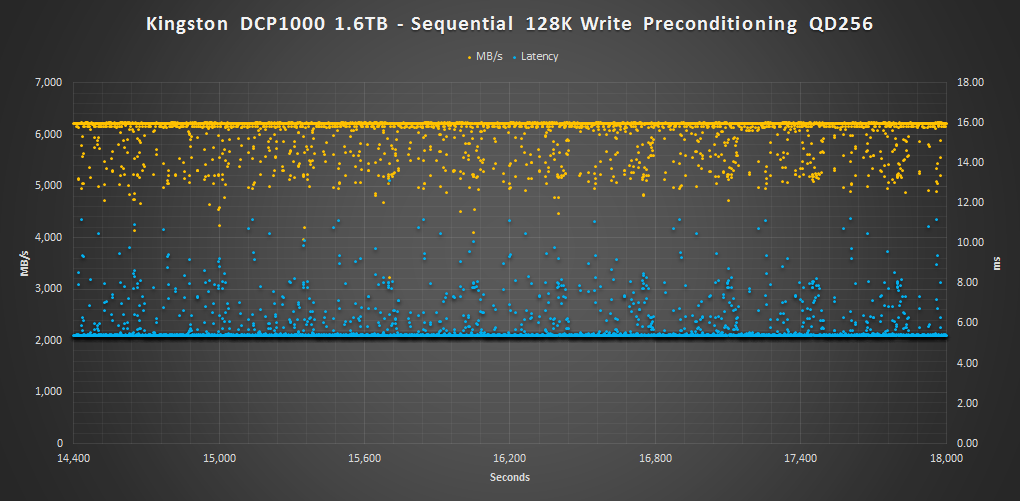128KB SEQUENTIAL READ/WRITE
Sequential performance is measured similarly to the other two tests before. The drive is first secure erased to get it in a clean state. Next, we precondition the drive with a 128KB sequential write workload at QD256 until the drive is in a steady state. Finally, we cycle through QD1-256 for 5 minutes each for writes and then reads. All this is scripted to run with no breaks in between. The last hour of preconditioning, the average MB/s, and average latency for each QD is graphed below.
While the Kingston DCP1000’s consistency is not as good as many of the other SSDs we have tested, during sequential write operations, it seems to be much more improved. It averages a bit over 6GB/s write with dips down to about 5GB/s for the worst-case majority and at the worst case it can dip down to about 4GB/s…which is still really really fast.
Surprisingly here, in contrast to the results in random performance testing, during QD 1-2 in sequential reads the DCP1000 is beaten by the Intel DC P3608, however, from QD 4 and on the Kingston DCP1000 gets warmed up and flexes its muscle. At QD 8 it is already outperforming the Intel DCP3608’s performance at QD 32 and at QD 32 it levels out to over 7GB/s!
In sequential write testing, the Kingston DCP1000 is just a monster. Something that eats data and can’t get enough of it. We thought it was fast in reads, but when looking at sequential writes compared to the pool, it just isn’t even fair. The Kingston DCP1000 takes the cake across the board. No drive can come close to the Kingston DCP1000 in sequential write workloads it would take three to four of any of the comparison drives to come close or beat it.
 The SSD Review The Worlds Dedicated SSD Education and Review Resource |
The SSD Review The Worlds Dedicated SSD Education and Review Resource | 


wow this one is a true beast
What raid level did you use for the four logical drives ?
RAID 0. Stay tuned as we are doing same to two of these drives soon.